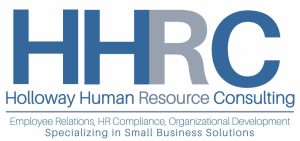 On July 1, 2018, employers must start withholding the tax (one-tenth of 1 percent or .001) from:
On July 1, 2018, employers must start withholding the tax (one-tenth of 1 percent or .001) from:
- Wages of Oregon residents (regardless of where the work is performed).
- Wages of nonresidents who perform services in Oregon.
The 2017 Oregon Legislature passed House Bill (HB) 2017, which included the new statewide transit tax. The statewide transit tax is calculated based on the employee’s wages as defined in ORS 316.162. Employees who aren’t subject to regular income tax withholding due to high exemptions, wages below the threshold for income tax withholding, or other factors are subject to statewide transit tax withholding.
- The definition of “wages” excludes amounts paid to certain types of employees and independent contractors (ORS 316.162).
- Self-employment income isn’t subject to this tax.
- This tax isn’t related to the Lane or TriMet transit payroll taxes.
- Transit payroll taxes are imposed on the employer based on the amount of payroll. The statewide transit tax is imposed on the wages of each employee, but the employer is responsible for withholding, reporting, and remitting the statewide transit tax.
- Revenue from the statewide transit tax will go into the Statewide Transportation Improvement Fund to finance investments and improvements in public transportation services, except for those involving light rail.
The Oregon Department of Revenue has posted a list of frequently asked questions. Enter “statewide transit” in the search bar, and then uncheck the boxes except for “Statewide Transit Tax.”
Employee Notification
You can share information about this new tax with your employees through messages on their paystubs. If you issue paper paystubs, printable payroll stuffers have been provided. For electronic paystubs, consider adding—or asking your payroll service provider to add the following language:
“Starting July 1, 2018, you’ll see a new item on your paystub: the statewide transit tax. The tax is one-tenth of one percent—or $1 per $1,000—and your employer withholds it from your wages. Please note, those exempt from income tax withholding, aren’t exempt from withholding for this tax. Visit the Oregon Department of Transportation’s website for information about the projects this tax will support: www.oregon.gov/odot. For more information on the tax, go to the Department of Revenue’s website at www.oregon.gov/dor.”
For employers
Oregon employers are responsible for:
- Withholdingthe tax from employees’ wages.
- Reportingtaxes withheld on a quarterly or annual return.
- Remittingtaxes withheld quarterly or annually.
- Reconcilingquarterly or annual reports on the annual reconciliation return.
If employers do not withhold this tax appropriately or file and pay on time, you may be subject to penalties and interest. Penalties can be assessed for knowingly failing to deduct and withhold the tax of $250 per employee, up to $25,000 for each tax period, in addition to other penalties and interest authorized by state law.
Oregon residents who perform services outside of Oregon can ask their out-of-state employer to withhold the tax from their wages as a courtesy—similar to income tax withholding. However, Oregon can’t require out-of-state employers to do so, as they’re outside Oregon’s taxing jurisdiction.
Agricultural and domestic employers may file returns and make payments for this tax annually, as they do with their income tax withholding.
Returns and payments
Any tax collected must be held in trust to be remitted and reported to the Department of Revenue on or before the last day of the month following the previous calendar quarter. For example, you need to start withholding this tax on July 1, 2018, so the first quarter you’ll report and remit for is third quarter 2018. This quarter ends on September 30, 2018, which means your return and payment are due by October 31, 2018.
There is no minimum threshold for filing the statewide transit tax return. Even if the amount of statewide transit tax withholding is minimal, employers still need to file the return and remit the amount of tax withheld each quarter (unless you’re an annual filer).
Agricultural and domestic employers can report and remit the statewide transit tax on either a quarterly or annual basis. If you’re an annual filer, you must remit and report the statewide transit tax by the last day of the month following the end of the calendar year, or January 31.
Annual reconciliation reports are also due by January 31.
If the due date for your quarterly return and payment or annual report falls on a weekend or holiday, the due date shifts to the next business day.
Forms
Transit tax forms are available now. Do not use the current income tax withholding forms or payment coupons for this tax.
Filing options and payments
Employers can file returns and detail reports using electronic or paper options. Filing electronic returns and detail reports will require setting up a Revenue Online account. For more information on how to set up an account, please visit Revenue Online. You can pay by cash, check, money order, or EFT. Include the new payment coupon with your check or money order to ensure it is applied appropriately.
Cash payments are only accepted at the main office at 955 Center Street NE in Salem. You can walk in and make your payment anytime during normal business hours, or you can call (503) 945-8050 to schedule an appointment.
W-2s and iWire filing
Where does the new statewide transit tax get reported on the Form W-2?
There isn’t currently a requirement to report the statewide transit tax on the Form W-2. The Oregon Dept. of Revenue is analyzing the impact of adopting an administrative rule that requires statewide transit tax wages and withholding to be reported in Box 14 of the W-2. This prospective rule change would be part of the fall 2018 rulemaking process. The draft rule would be posted on the Oregon Dept. of Revenue website for review, and there would be the opportunity for public comment on the potential impacts of this requirement.
How will the new statewide transit tax be reported in iWire?
As with prior years, there will still be three separate W-2 filing options (manual entry, spreadsheet import, and bulk file).
Manual entry—There will be two new fields: “Statewide Transit Taxable Wages” and “Statewide Transit Tax Withheld.” These fields will be labeled as “Box 14” in addition to the regular “Other” Box 14 where other information can be entered.
Spreadsheet import—The updated spreadsheet template option will have two new columns in the Form W-2 worksheet labeled “Box 14”: “Statewide Transit Wage” and “Statewide Transit Withholding.”
Bulk file—The updated bulk file specifications are available under “File Specifications” on the iWire information page.
Oregon residents working out-of-state
If you’re an Oregon resident who performs services outside of Oregon, you can ask your employer to withhold the tax from your wages as a courtesy—similar to income tax withholding. However, Oregon can’t require out-of-state employers to do so, as they’re outside Oregon’s taxing jurisdiction. If your employer doesn’t withhold the tax for you, you’re responsible for reporting and paying the tax when you file your personal income tax return. There is no extension to the filing and payment deadline for the statewide transit tax. If you fail to report or pay on time, you may be subject to penalties and interest.
Still Pending
The process employers use to file and pay is still being finalized. The Oregon Dept. of Revenue is still finalizing the process employers and payroll providers will use to file and pay and will be updating their website over the next few months as it gets closer to the start date for submitting the statewide transit tax withholding to the Oregon Dept. of Revenue. Be sure to check this space regularly for new and updated information from Payroll Specialties, Inc. and Holloway HR Consulting.
Source: Oregon Dept. of Revenue

